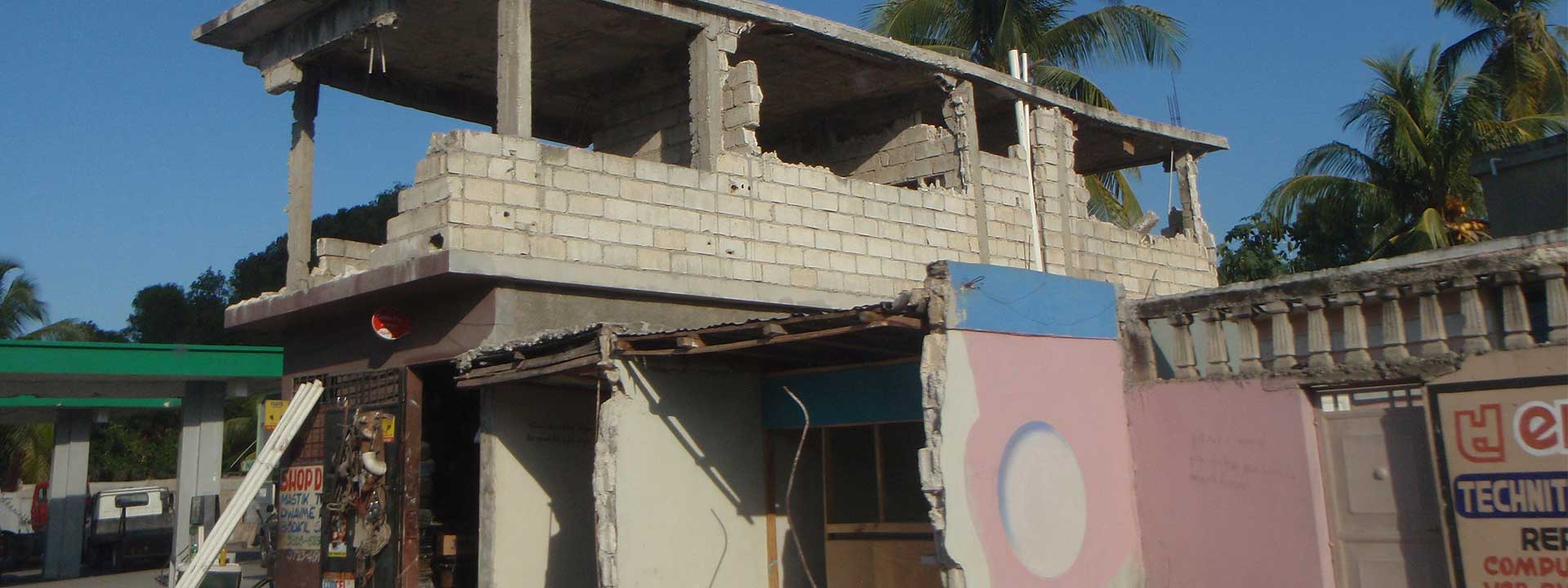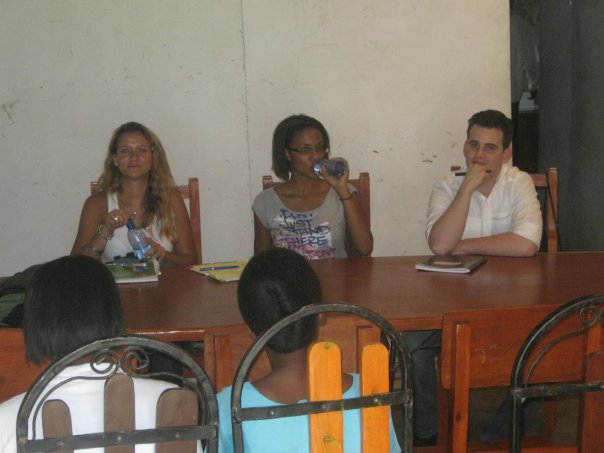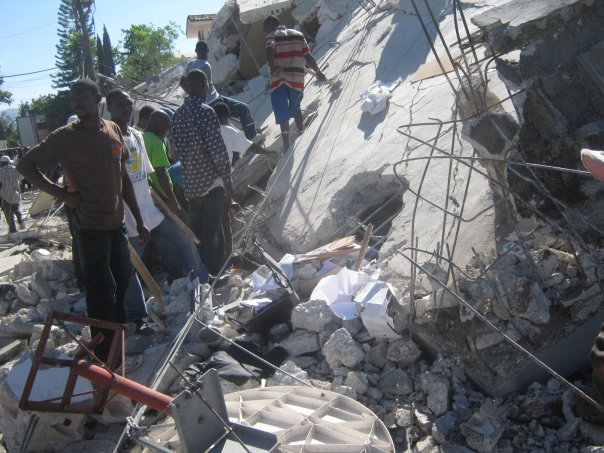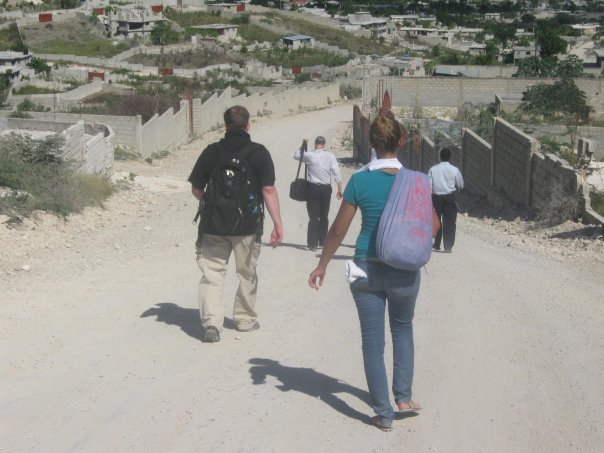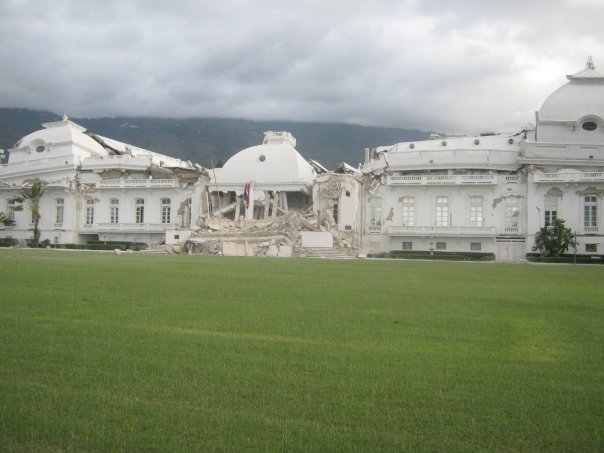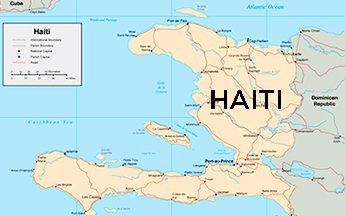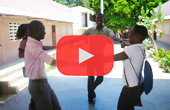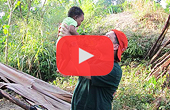UM alumna Kristina Rosales traveled to Haiti as a student in 2010, and hopes
the country can recover more quickly.
Five years after standing at ground zero of the Western Hemishphere's deadliest natural disaster, Kristina Rosales, A.B. ’10, is outspoken about Haiti's current condition.

Just a few hours before the earthquake, Kristina Rosales, third from right, shared laughs and conversation with fellow UM students and their Haitian counterparts.
“My perception is a bit negative and controversial,” she says. “Corruption has been a predominant theme in the relief and rebuilding of Haiti after the earthquake. With over $200 million invested, infrastructure continues in shambles; people are still in temporary tents and homes. Rebuilding has not really taken place. Temporary relief exists for those aware and able to navigate through aid loops.”
Rosales, now a Foreign Service Officer stationed in Rio de Janeiro, Brazil, was a senior at UM when she arrived in Haiti in December 2009 with fellow UM students Austin Webbert, A.B. ’10, and Arielle Duperval, A.B. '12, and their anthropology professor, Louis Herns Marcelin. Their goal during the winter intersession trip was to do outreach with young people living in Haiti’s most infamous and impoverished neighborhood, Cité Soleil.
On their way back from this work on the afternoon of January 12, 2010, Rosales and her peers found themselves at the epicenter of the deadly disaster. “The earthquake was the last thing we expected,” Rosales says.
In the chaotic aftermath of the 7.0 magnitude temblor, the shocked but uninjured students tried to reconnect with their professor, who was in another part of the city at the time of the quake. Within days, the students were flown to safety while the Haitian-born Marcelin stayed on in his country to help however he could.
Back at UM that April, Rosales, Webbert, and Duperval committed at the 2010 Clinton Global Initiative University to develop Soley-Ini, a network of youth community centers in Cité Soleil under Marcelin’s guidance. Their proposal received a $5,000 grant as part of the ACC-IAC Fellows Program in Creativity and Innovation.
There are some images and sensations I will never forget about. I almost see it as having a second chance at life.
Rosales has been back to Port-au-Prince once—eight months after the earthquake cut short her time there. “It was a bit shocking and sad,” she recalls. “Conditions in the country were relatively the same since I had last seen them in January 2010.”
But Rosales takes a measure of comfort and hope from the Soley-Ini Youth-to-Youth Project she and her fellow ’Canes helped to found in 2010. Today, under the auspices of Haiti's Interuniversity Research Institute (INURED), which is headed by her former professor and mentor Louis Herns Marcelin, Soley-Ini works to foster educational, cultural, and economic development opportunities among children and young adults in Cité Soleil, with a focus on non-violent conflict transformation, empowerment projects, and international exchanges between Haitian and American youth.
Rosales says she would like to go back to Haiti. In the meantime, her experience there is never far from her thoughts.
“I think of our earthquake experience often,” she says. “There are some images and sensations I will never forget about. I almost see it as having a second chance at life.”
After graduation, Rosales was awarded a Fulbright Fellowship, earned her master’s degree in public health from Columbia University, and joined the Foreign Service.
